There’s no real way to make finding a job fun. However, there are some Denver-specific tips for job seekers to expedite the process, and land a job that you actually like. The Denver Post recently wrote an article for job seekers in the Denver area, with area-focused advice called, “How to get a job in Denver.” WalletHub also had experts from universities nationwide weigh in on what makes a candidate standout, how to turn an entry-level job into a successful career, and much more.
Code Talent took the main, most important points from all the experts to help tech workers in Denver on the hunt.
The #1 problem Colorado tech companies face: unqualified applicants.
It’s no mystery that tech workers in Colorado are highly sought after. However, that doesn’t mean companies can’t find applicants—Ibotta reported receiving over 1,000 applications for an account manager position. The real issues Colorado tech companies are having is finding applicants that are qualified. Only 10 of the 1,000 Ibotta applicants made it to a phone interview, and just 5 were actually hired. The head of Ibotta Human Resources, Alison Meadows, said that most weren’t qualified.
Do your research. Make sure you know what the job entails and what the company needs from you, ensure that you can meet those needs.
However, even if you’re not qualified for one position, you can most likely still work for the company, and eventually move into the position you’d hoped for. The Denver Post suggests starting in an entry-level position at a favorite company. Their example is Ibotta, who aims to hire five customer-service representatives a week. Meadows suggests customer-service as a good place to start: “We’ve hired and promoted many (customer-service representatives) who are now in our core team. It’s a good stepping stone.”
When you do secure that entry-level position, give it 100%. Lisa Jane Laird, the career services manager at Snow College, says that in order to turn an entry-level job into a successful career, you must:
“demonstrate the communication, collaboration, and continuous learner capabilities that employers need, while also developing a strong support network to facilitate continued growth in challenging times.”
Don’t just show up for your scheduled hours and do what your told. Go above and beyond to show the company that you are a valuable asset to their team. Use your time as an opportunity to learn, build credibility within the organization, and expand your network. Bridgett Coble, the Director of Career Services at Metropolitan State University of Denver, suggests to go one step further and seek out a mentor. Someone in a higher position, with more experience, that can connect you to key people.
The importance of research.
Congratulations! You’ve secured an interview. Now what?
“Attempt to really know the employer in depth. That means doing more than reading the job description and the official website,” said the Director of the Career Center at the University of Maryland, Kelley Bishop.
“Do a full-fledged Google search and find out every significant mention of what’s transpired with the organization during the last six months.”
Additionally, he suggests connecting with current and former employees on social media, know the industry, know the trends affecting their business. This puts you above the other candidates. With good research, you are better equipped to hold a conversation, ask questions, and prove you care to the interviewer.
“What I’ve seen work beyond technology tools is conversations and relationships. What’s worked for me and my friends is to do research and become an expert. Those men and women leading (area tech companies) said that someone who does that makes them miles ahead of everyone else—just for asking good questions.”
~Matthew Conforti, client manager for Flux Resources.
Networking.
We all know how important networking is, but that doesn’t stop it from feeling like a chore at times.
Instead of dreading your networking “events,” volunteer for a cause you’re interested in, says the Denver Post, it’ll give you a new social network, surround you with those who have similar interests, and add to your resume. Go to the events you’re actually interested in, seek them out, and seek out the people you want to surround yourself with professionally.
Other times, networking can feel awkward and scary. Try practicing with a friend and experience being the center of attention. If going to a full-fledged event sounds like a bit much, Bishop suggests emailing a network and offering to buy them a cup of coffee: “Job seekers can learn much more in person than virtually, and the serendipity of being at the right place at the right time is more likely to come into play.”
Not only can networking help you land the job, but it can help you find the job. According to the Denver Post, there are about 30% of jobs that never see a job board or public posting. These jobs are typically kept quiet to give internal employees a chance to apply, and the only what to find out about it is to know someone.


